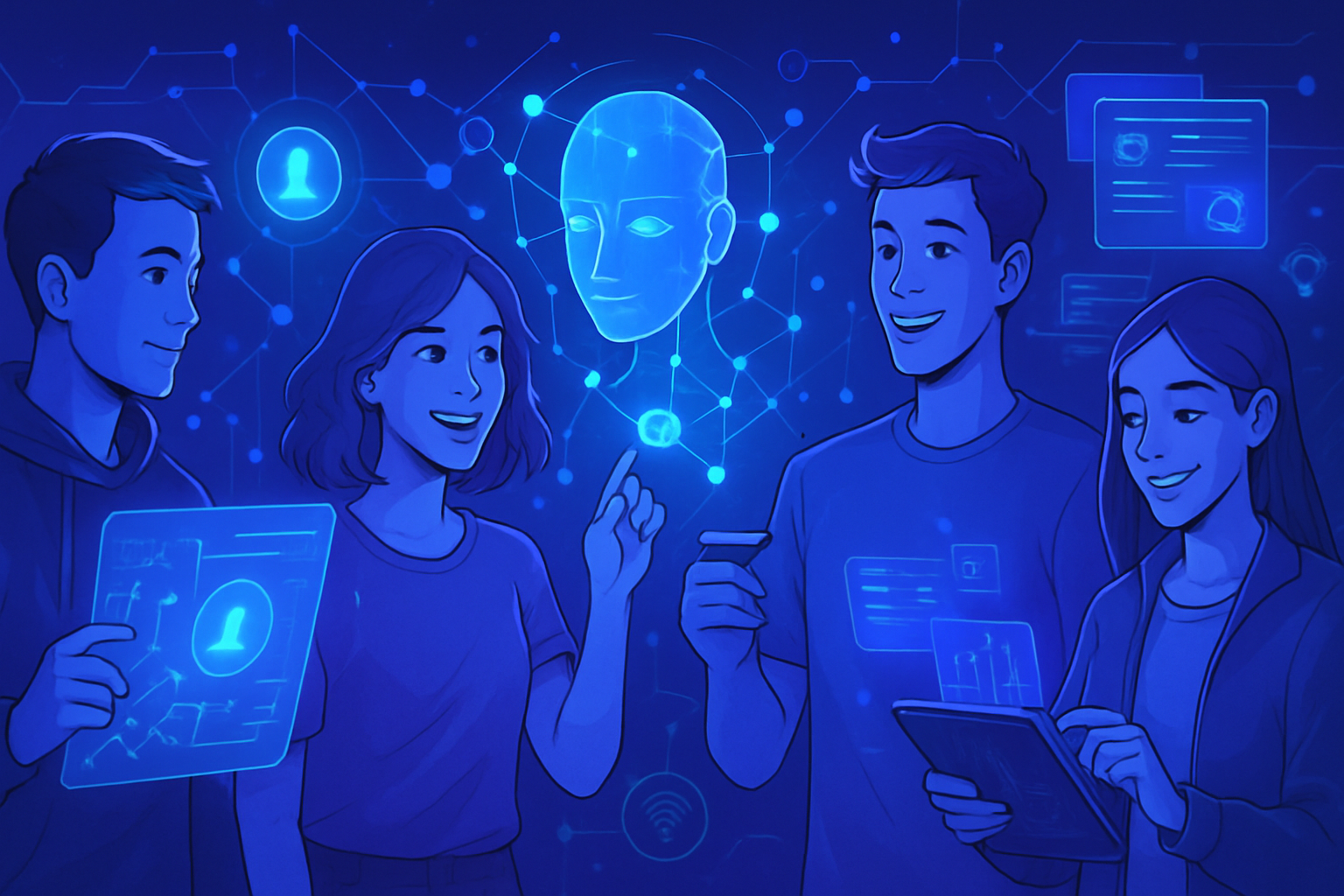93% of young people aged 18 to 25 are engaging with AI, radically transforming their daily interactions. The massive adoption of these innovative technologies resonates across professional and personal spheres. The search for information is becoming ubiquitous, indicating a rapid acclimatization of youth to artificial intelligence tools. Their varied uses transcend the boundaries of education, marking a decisive evolution in social and economic dynamics. Young people are not just adopting AI; they are making it an essential component of their existence.
Growing Use of AI Among Young People
The report from Heaven agency, titled Born AI 2025, reveals that 93% of young people aged 18 to 25 have used a service relying on artificial intelligence in the past six months. This figure, which surpasses previously observed rates, reflects a growing adoption of these technologies by younger generations. The difference in usage between genders is minimal, with 94% of girls and 93% of boys having experimented with an AI service.
Increased Frequency of Use
The frequency of use of artificial intelligence tools among young people has significantly increased. In 2024, only 21% of young people used them daily; today, that figure has jumped to 42%. This indicates a shift in the routine of young people, incorporating AI into their daily lives. Additionally, around 35% of respondents say they use it once a week, maintaining stability in this form of engagement.
Most Used AI Tools
Analyses highlight the ten most popular tools for this age group. At the forefront, ChatGPT stands out with usage by 84.6% of respondents. Other services such as My AI from Snapchat, Meta AI, and Gemini follow, allowing young people to benefit from virtual assistants and content generators.
Motivations Behind the Use
The reasons for using AI tools confirm their integration into young people’s lives. The search for information accounts for 68% of uses, marking a significant increase. Moreover, 61% of young people use AI for work or study-related tasks, bringing these tools closer to their academic and professional activities. Personalized recommendations are also in high demand, with 41% of respondents using them regularly.
Academic and Professional Practices
In the student and professional context, the adoption of AI is proving to be very beneficial. The five most common use cases include writing texts, researching information, correcting documents, translating, and synthesizing information. Indeed, young people favor these tools to enhance their productivity and efficiency in their academic work.
Ambivalent Feelings Toward AI
Despite the enthusiasm, 48% of students acknowledge having cheated by using artificial intelligence, reflecting an ambivalence between usage and morality. At the same time, 54% believe that refusing to use AI would be a disadvantage in their studies or professional environment. This raises questions about the ethics of using these technologies and their impact on academic integrity.
Daily Use of AI
The report highlights a marked trend: 71% of young people claim that AI saves them time in their daily tasks. The most explored themes include history, pop culture, and health, showing that AI extends beyond the academic realm. Furthermore, nearly half of the respondents have generated images using AI tools, while 15% report having purchased products based on AI recommendations.
Future Perspectives
The data from the Born AI report suggests that the adoption of AI among young people will only grow. The role of AI tools in educational, professional, and personal environments now seems inseparable. Thus, the relationship between young people and artificial intelligence must be closely monitored from both a social and ethical standpoint.
Frequently Asked Questions About AI Adoption by Young People Aged 18 to 25 by 2025
What is the main finding of the study on AI adoption by young people?
According to the study, 93% of young people aged 18 to 25 have used at least one service based on artificial intelligence in the past six months.
What are the main reasons young people use AI?
Young people primarily use AI for information searches (68%), for academic or professional tasks (61%), and to receive personalized recommendations (41%).
What are the most popular AI tools among young people?
The most used tools include ChatGPT (84.6%), My AI on Snapchat (43.4%), and Meta AI (35.6%).
How has AI usage evolved compared to the previous year?
In 2025, the frequency of AI usage has significantly increased, with 42% of young people using it at least once a day, compared to 21% in 2024.
Are there any concerns regarding the use of AI by young people?
Yes, nearly 48% of students admit to having cheated by using AI, and 54% feel that not using it would put them at a disadvantage.
What impact does AI have on young people’s daily tasks?
71% of young people claim to save time in their daily tasks thanks to AI, showing its increasing integration into their daily lives.
What types of AI-generated content are popular among young people?
Young people generally seek information on themes such as history, popular culture, and health. Additionally, 48.5% have generated an image and 23.2% a video using an AI tool.






